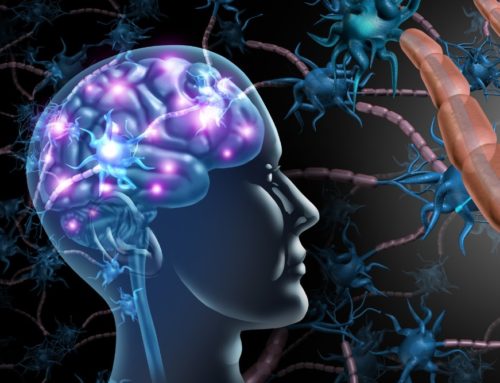Senior Living: The Dangers of Depression
Occasionally feeling down isn’t uncommon in those of all ages. But when those feelings persist longer than a day or two, you may be suffering from depression. Without treatment, this mood disorder often worsens, especially in the elderly. In fact, the dangers of depression include altering your physical and mental health and could even be fatal.
Depression is often reported in those with neurological disorders, including dementia, stroke, Parkinson’s, and epilepsy. Though there is no complete recovery to these conditions, they may be manageable. Your medical team may recommend psychological support, and therapeutic recreational activities to boost your mood. Learning how depression affects your body and mind is also beneficial, which we’ll discuss in the following sections.

The Dangers of Depression in the Elderly
Depression affects those of all ages, but some evidence shows it is less common in older adults than younger people. Despite fewer occurrences, the mood disorder is more dangerous in seniors. The symptoms may also vary, with higher severity and a greater risk of reduced physical, social, and cognitive functions.
Several depression types affect older adults and are often the result of a medical condition or substance or medication use. Persistent Depressive Disorder allows you to continue with your daily routine while Major Depressive Disorder prevents such abilities. Regardless of the depression type you’re experiencing; you will likely have several physical and mental conditions to contend with.
Physical effects
One of the dangers of depression is its link to heart disease. After a heart attack, seniors often become depressed, but depression increases the risk of cardiovascular issues. Those with a mood disorder may overeat, don’t monitor medication use, smoke, drink excessively, and become more sedentary. These activities increase the risk of heart attack.
According to experts, obesity is common in depressed seniors, even in those taking antidepressant medications. Not only do these individuals tend to overeat, but they also choose unhealthy options. Rather than snacking on fruits, vegetables, or whole grains, they’re reaching for fatty, salty, or sugary items. When combined with a lack of exercise and poor sleep habits, obesity is the result, risking several related medical conditions.
Though overeating and obesity are a danger of depression among seniors, many suffer from malnourishment instead. Depression often reduces hunger, or they forget to eat, leading to unhealthy dietary habits. Those missing nutrients lead to fatigue, weight loss, anemia, and poor immune function. It could even affect neurological function, increasing depression symptoms and the risk of other conditions.
Mental effects
Fatigue is common among depressed seniors, but it affects more than the body. Evidence shows that overwhelming tiredness often affects emotional and cognitive functions. Low energy decreases attention, concentration, processing, and mental endurance. Seniors also lose interest in activities, socialization, and motivation, causing boredom and isolation.
Another danger of depression is how it affects your sleep habits. When you don’t sleep enough, you have trouble regulating emotions or handling stress. Not getting a good night’s rest also alters cognitive function, memory, problem-solving, attention, and mood.
Understanding that help is necessary
Addressing depression, isolation, and the risks associated with these conditions and understanding how bad it is for their health is critical for seniors to maintain their mental and physical health. They should seek mental health support. A counselor or therapist can help navigate feelings of depression.
Medical conditions, financial concerns, and the loss of loved ones affect all seniors, increasing the risk of depression. As their health declines and isolation grows, they lack social connections, increasing loneliness. Depression becomes especially dangerous since it may lead to hopelessness and self-harm. Seeking help from friends, family, and medical professionals is crucial to prevent such dangerous thoughts.
Resources:
- PubMed Central, April 10, 2010, Depression in Older Adults
https://pmc.ncbi.nlm.nih.gov/articles/PMC2852580/#:~:text=It%20is%20associated%20with%20increased,mortality%20(Blazer%2C%202003) - National Institute on Aging, Depression and Older Adults
https://www.nia.nih.gov/health/mental-and-emotional-health/depression-and-older-adults - MedlinePlus, Heart disease and depression
https://medlineplus.gov/ency/patientinstructions/000790.htm#:~:text=Heart%20disease%20and%20depression%20often,likely%20to%20develop%20heart%20disease. - CDC, Depression and Obesity in the U.S. Adult Household Population, 2005-2010
https://www.cdc.gov/nchs/products/databriefs/db167.htm - PubMed Central, June 30, 2011, Association between Malnutrition and Depression in Elderly People in Razavi Khorasan: A Population-Based Study in Iran
https://pmc.ncbi.nlm.nih.gov/articles/PMC3481766/ - Cleveland Clinic, Fatigue
https://my.clevelandclinic.org/health/symptoms/21206-fatigue - National Heart, Lung, and Blood Institute, How Sleep Affects Your Health
https://www.nhlbi.nih.gov/health/sleep-deprivation/health-effects - National Council on Aging, January 9, 2024, Suicide and Older Adults: What You Should Know
https://www.ncoa.org/article/suicide-and-older-adults-what-you-should-know/
This article contains informational and educational materials and does not replace health or medical advice. For questions or concerns regarding your medical condition or health objectives, speak to a qualified physician or healthcare provider.






Leave A Comment